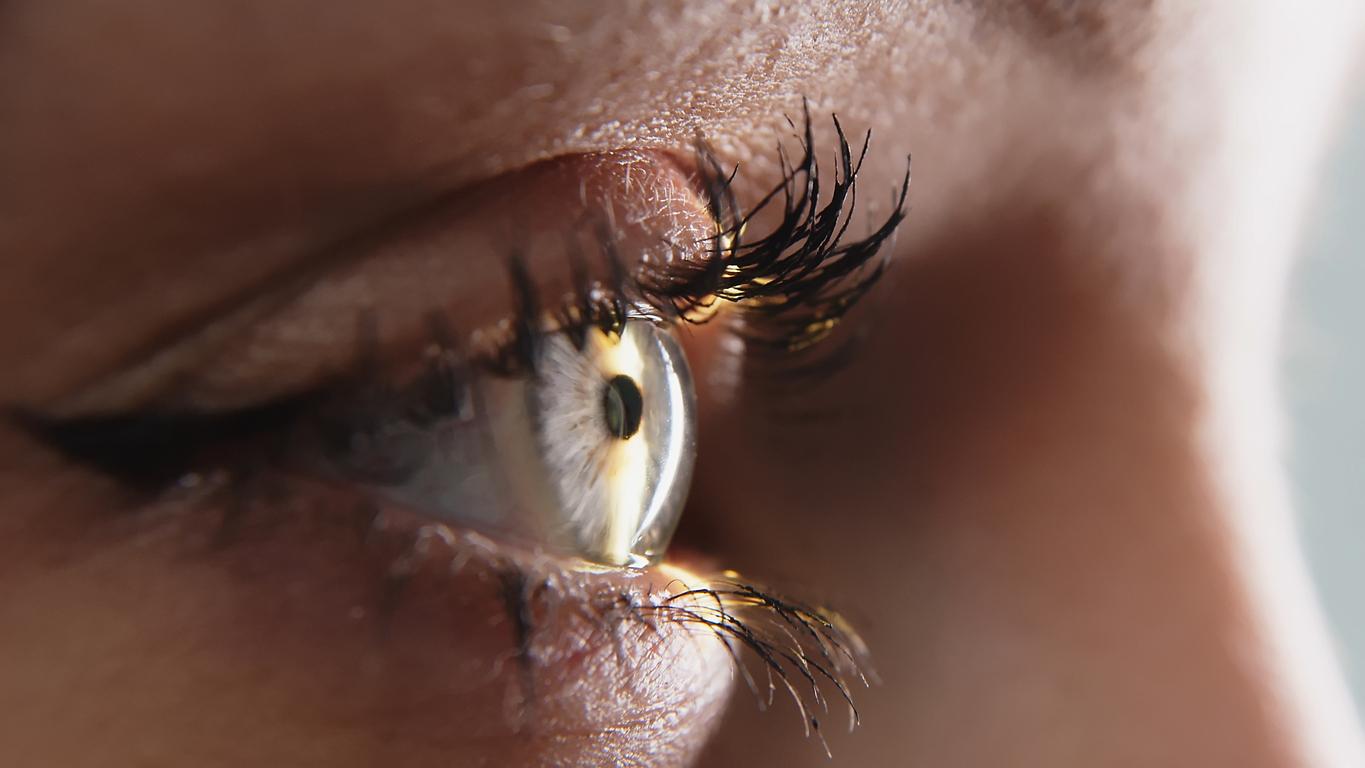Korean researchers have developed eye drops containing several peptides that would be as effective as intravitreal injections against the dry form of age-related macular degeneration.

- So-called atrophic or “dry” AMD, which represents 90% of cases, corresponds to an abnormal thinning of the macula and a progressive disappearance of specialized cells equipped with photoreceptors.
- Korean scientists developed peptide-based eye drops that protected retinal cells and reduced retinal degeneration in sick mice.
- Now, they plan to “advance global clinical trials for this therapy.”
It appears after 50 years and evolves gradually. Age-related macular degeneration (AMD) is a chronic disease of the central area of the retina, called the macula. There are two forms: so-called atrophic or “dry” AMD and so-called exudative or “wet” AMD. The dry form represents 90% of cases. This “corresponds to an abnormal thinning of the macula and a progressive disappearance of specialized cells equipped with photoreceptors. This process generates holes of increasing size in the macula, visible by simple observation of the retina by fundus. “It causes a slow (over 5 to 10 years) and progressive alteration of central vision”, explain Health Insurance.
AMD: a library of more than 190,000 peptide drug candidates
To date, the only treatments approved, in the United States, by the Food and Drug Administration (FDA) for “dry” AMD in 2023 are two injectable drugs, which raise fears due to the complications of intravitreal injections and their low effectiveness in restoring vision. In order to improve the quality of life of patients, scientists from the Korea Institute of Science and Technology decided to develop a new therapeutic agent for dry AMD that can be administered in the form of eye drops, because eye drops are more simple to use.
For the purposes of the work, published in the journal Advanced Sciencethe team focused on the inflammatory signaling pathway of Toll-like receptors (TLRs), which are essential regulators of the immune system and play an essential role in the pathogenesis of AMD. By extracting peptide sequences from tens of thousands of proteins with structures similar to natural TLR signaling proteins, researchers established a vast library of more than 190,000 peptide drug candidates. After using advanced technology for the rapid screening of peptides that specifically bind to TLR signaling proteins, they successfully identified several candidate peptides capable of inhibiting interactions between these proteins.

Peptide-based eye drops may help reduce retinal degeneration
Next, the authors tested the effectiveness of the selected peptides by administering them as eye drops to mice suffering from induced dry AMD. Rodents that received this treatment saw their retinal cells protected and showed significantly reduced retinal degeneration, comparable to that of so-called “control” animals. Thus, these peptide-based drops could effectively replace existing injectable therapies for dry AMD. “We plan to continue collaborative research with domestic and international pharmaceutical companies to advance global clinical trials for this innovative therapy for this form of age-related macular degeneration,” concluded Moon Hyeong Seowho led the research.

















